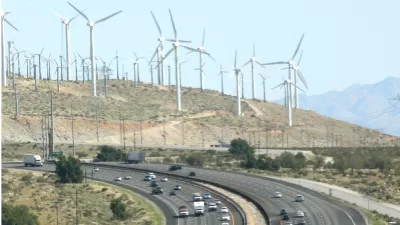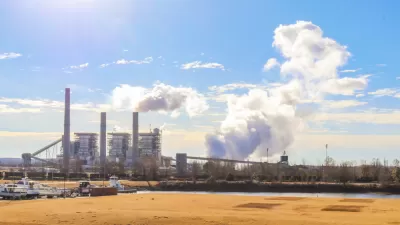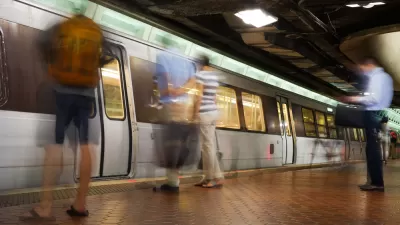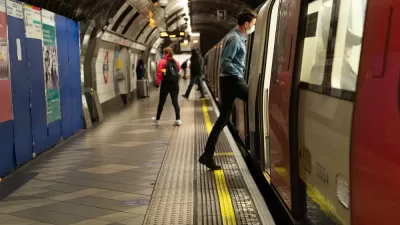The dramatic reductions in carbon emissions during the last year only highlight how drastically humans must change behavior to meet climate goals.

In the early months of the pandemic, the reduction in driving, carbon emissions, and traffic shone as one bright spot in the darkness of COVID-19. But the dramatic drop in greenhouse gas emissions brought on by pandemic closures won't last, writes Amina Khan in the Los Angeles Times, if governments don't take meaningful steps to maintain lower emissions and aggressively strive to hit their climate policy goals.
"To meet the Paris climate targets, the U.S. and the rest of the world will need to cut their emissions by about 1 billion to 2 billion metric tons per year — near-pandemic-level reductions — for every year throughout the 2020s." Yet "most current COVID-19 recovery plans are in direct contradiction with countries’ climate commitments."
One solution is to "ensure that post-pandemic growth is also tied to building a greener economy" and that new policies foster clean technologies as part of the economic recovery. The reduction in energy consumption during the pandemic was "deeply disruptive" to the lives of most people. But while Americans will largely go back to using the same energy-consuming devices and services they used before—and, in some cases, more of them as delivery services and digital tools become daily necessities—making those devices and services more energy-efficient can have similar and less disruptive benefits.
FULL STORY: COVID-19 helped slash 2020’s carbon dioxide emissions. How will we keep it going?

Maui's Vacation Rental Debate Turns Ugly
Verbal attacks, misinformation campaigns and fistfights plague a high-stakes debate to convert thousands of vacation rentals into long-term housing.

Planetizen Federal Action Tracker
A weekly monitor of how Trump’s orders and actions are impacting planners and planning in America.

In Urban Planning, AI Prompting Could be the New Design Thinking
Creativity has long been key to great urban design. What if we see AI as our new creative partner?

How Trump's HUD Budget Proposal Would Harm Homelessness Response
Experts say the change to the HUD budget would make it more difficult to identify people who are homeless and connect them with services, and to prevent homelessness.

The Vast Potential of the Right-of-Way
One writer argues that the space between two building faces is the most important element of the built environment.

Florida Seniors Face Rising Homelessness Risk
High housing costs are pushing more seniors, many of them on a fixed income, into homelessness.
Urban Design for Planners 1: Software Tools
This six-course series explores essential urban design concepts using open source software and equips planners with the tools they need to participate fully in the urban design process.
Planning for Universal Design
Learn the tools for implementing Universal Design in planning regulations.
Gallatin County Department of Planning & Community Development
Heyer Gruel & Associates PA
JM Goldson LLC
City of Camden Redevelopment Agency
City of Astoria
Transportation Research & Education Center (TREC) at Portland State University
Jefferson Parish Government
Camden Redevelopment Agency
City of Claremont





























